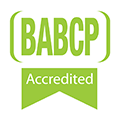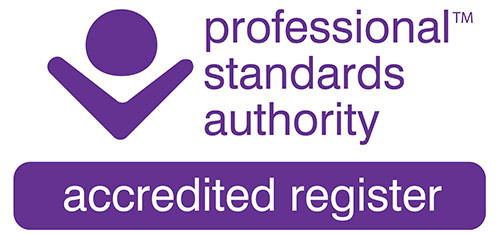Cognitive Behavioural Therapy
Sometimes our thinking is not entirely in line with actual events. We might think negatively about current situations because of bad things that have happened to us in the past.
Book initial assessment sessionSometimes our thinking is not entirely in line with actual events. We might think negatively about current situations because of bad things that have happened to us in the past.
Book initial assessment sessionCBT assumes there is an interaction between negative thoughts, difficult emotions, unhelpful behavior and the environment.
For example...
if I think that someone has tried to deliberately offend me, this might cause me to feel emotionally angry, anxious or sad. I may become overwhelmed by these feelings.
This might affect my behavior in that I write an angry email, confront that person or become withdrawn and quiet. This behavior may lead to negative consequences in my environment – such as falling out with people, or getting into trouble at work. These negative consequences further feed into my negative thoughts and feelings.
In CBT, you work with a therapist to identify and understand how these patterns uniquely affect you. Unhelpful strategies are identified and replaced with helpful strategies. You will learn how to change your response to negative thoughts and feelings.
CBT is a flexible approach that is used to treat numerous problems: depression, anxiety, OCD, PTSD, childhood abuse, low self esteem, anger, pain, addiction, relationship problems, jealousy, confidence issues and a range of other difficulties.
Russell Wharton is a BABCP accredited CBT practitioner. BABCP accreditation ensures that your CBT therapist has undergone rigorous training and continues to maintain high standards of practice.

Our CBT and EMDR therapies are available via video conferencing. Please consider the following before deciding whether video-conferencing is the right platform for you to engage fully with therapy.
The integration of Virtual Reality into the therapeutic process is becoming increasingly popular. Google Scholar highlights 2,320,000 citations and 440,000 articles relating to, "VR therapy." Virtual Reality enables your therapist to work with you on common problems, such as fear of flying, in a way previously not possible.
The cutting edge VR software package, used by Norfolk Therapy Services in the treatment of common mental health problems, is licensed and evidence based. Please get in touch to book a session or for more information.
Virtual Reality is a tool used in therapy, not a therapeutic approach.
Therapy consists of an initial assessment and then a number of treatment sessions according to the complexity of the problem.
* increased fee reflects additional costs involved in providing in person sessions. Research shows that online sessions can be just as effective as in-person.





Please feel free to get in touch with any questions or to book an initial assessment. All queries will be responded to by 6:00pm on the day of enquiry.